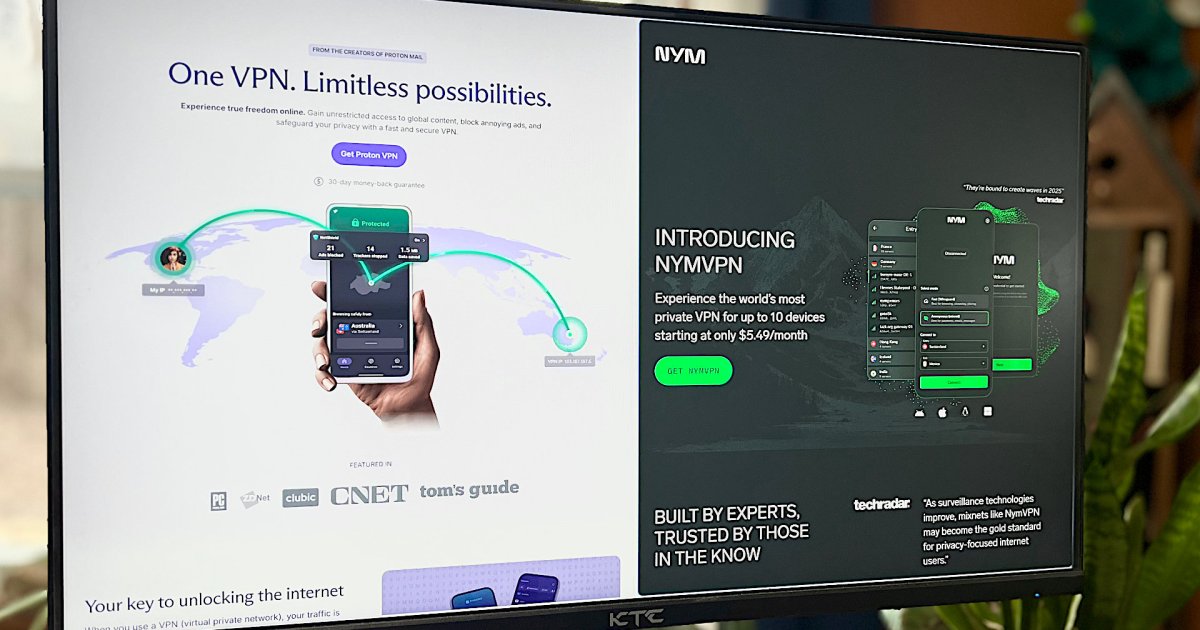In today’s digital landscape, online privacy is paramount. While standard VPNs offer a degree of anonymity, advanced threats necessitate stronger measures. Multi-hop VPNs, routing your traffic through multiple encrypted tunnels, provide an extra layer of security. This article compares two leading multi-hop VPN providers, Proton VPN and NymVPN, exploring their features, performance, and suitability for various needs.
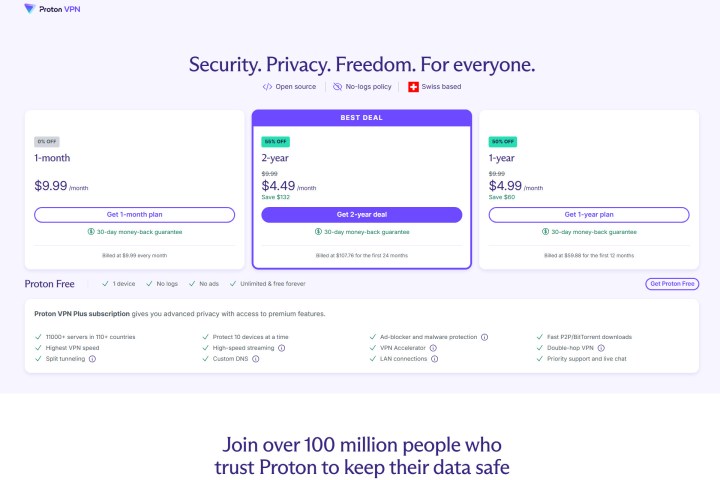 Comparison of Proton VPN and NymVPN features.
Comparison of Proton VPN and NymVPN features.
Pricing and Plans: Balancing Cost and Privacy
Proton VPN offers a range of plans, including a commendable free version with unlimited data and no ads, although server selection is limited. Paid subscriptions start at $4 per month for a two-year commitment, offering significant savings compared to the monthly option at $10. Proton also offers bundled packages that include Proton Mail, Proton Drive, and Proton Pass, valuable additions for users already invested in their ecosystem.
NymVPN, while lacking a free tier, prioritizes a decentralized network and advanced encryption. This comes at a premium, with a two-year plan costing $5 monthly, an annual plan at $7 monthly, and the monthly option at $13. This higher cost reflects the enhanced security measures implemented by NymVPN.
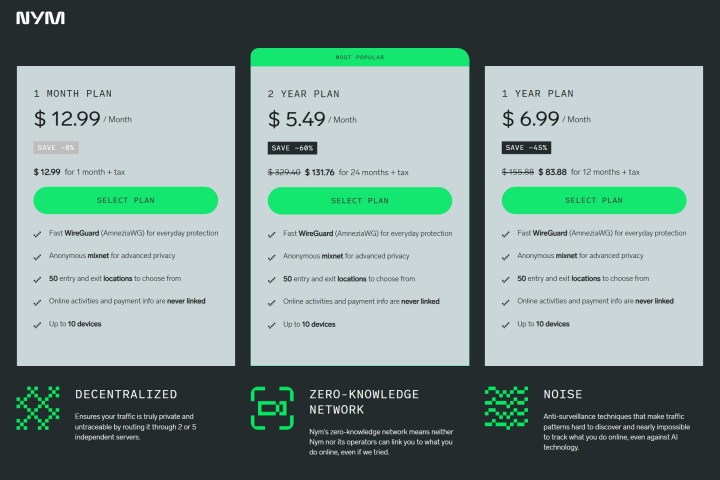 NymVPN subscription options.
NymVPN subscription options.
Feature Comparison: Speed vs. Security
Proton VPN boasts a vast server network and impressive speeds. Even the free servers maintained 74% of the original connection speed (tested on a 900 Mbps Ethernet connection). Paid subscriptions delivered even better performance, reaching up to 96% of native speed when connected to a local server.
NymVPN’s core strength lies in its multi-hop architecture. However, this affects speed. Testing revealed a 65% bandwidth reduction with a two-hop connection (US entry, Netherlands exit). While slower, this design enhances anonymity by obscuring the origin of your traffic.
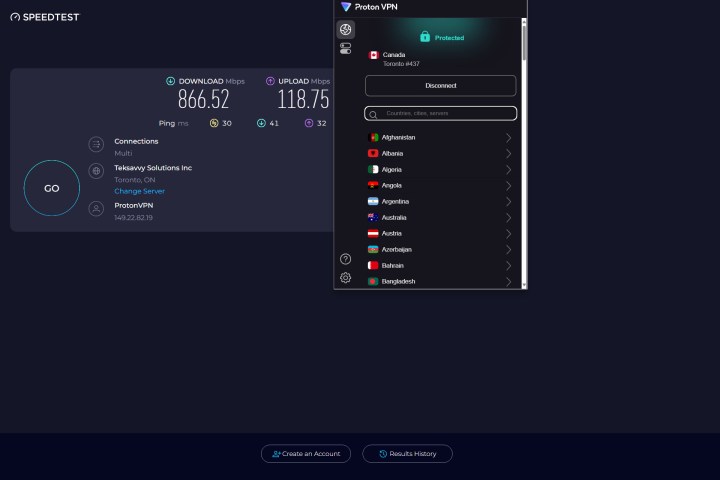 Proton VPN speed test results.
Proton VPN speed test results.
Multi-Hop Performance: SecureCore vs. Anonymous Mode
Proton VPN’s SecureCore offers nested tunnels, similar to NymVPN’s two-hop system. Testing SecureCore (Iceland entry, Canada exit) revealed a 63% speed reduction, comparable to NymVPN’s performance.
NymVPN’s five-hop “Anonymous Mode” maximizes privacy but severely impacts speed. Testing on a Windows PC rendered web browsing and email clients unusable. Subsequent tests on an iPhone (a less demanding environment) allowed basic messaging and email functionality, albeit slowly, with a 94% speed reduction. NymVPN recommends this mode for sensitive activities like payments and secure messaging.
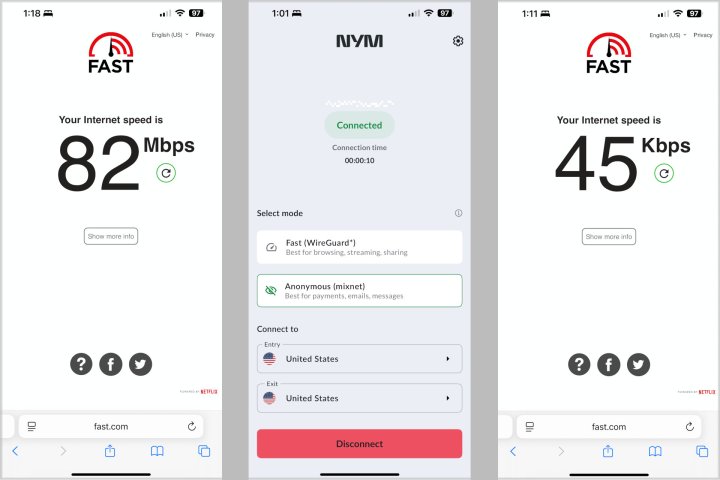 NymVPN speed test results with different hop configurations.
NymVPN speed test results with different hop configurations.
Support and Assistance
Both providers offer live chat and email support. Proton VPN’s live chat is available 15 hours daily, while NymVPN’s operates during weekdays. Both also provide helpful online resources and searchable knowledge bases.
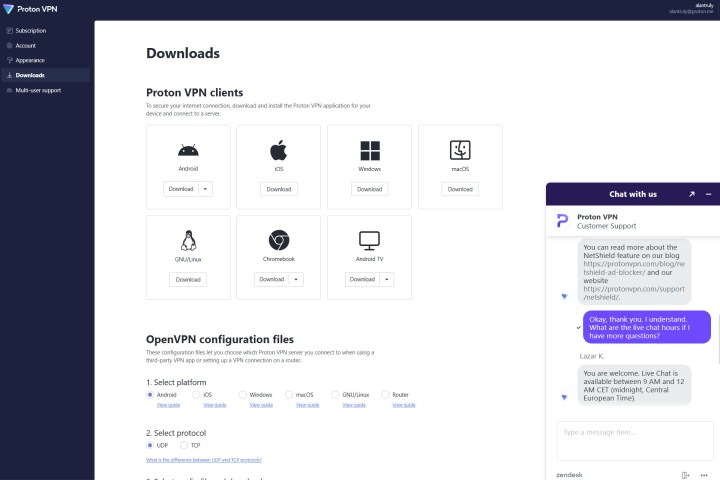 Proton VPN live chat interface.
Proton VPN live chat interface.
Privacy and Security: A Core Focus
Both Proton VPN and NymVPN prioritize user privacy. Both allow account creation without an email address and accept cryptocurrency payments for enhanced anonymity. Both have undergone independent security audits, validating their no-logging policies and robust security practices.
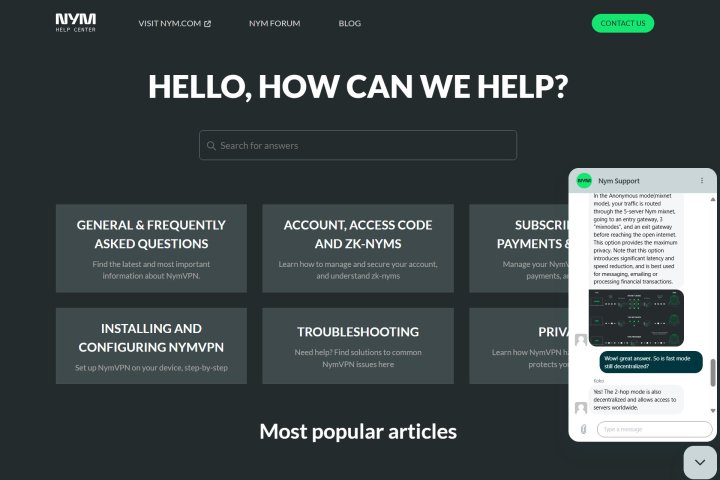 NymVPN support interface.
NymVPN support interface.
Conclusion: Choosing the Right VPN for Your Needs
Proton VPN caters to users seeking a balance of speed, features, and enhanced privacy. Its SecureCore feature provides robust protection when needed, while still offering excellent performance in standard mode.
NymVPN, with its decentralized network and Anonymous Mode, is ideal for users requiring maximum anonymity, even at the cost of speed. This makes it a compelling choice for users in regions with strict censorship or those prioritizing utmost secrecy. Ultimately, the best choice depends on your individual privacy needs and performance expectations.



